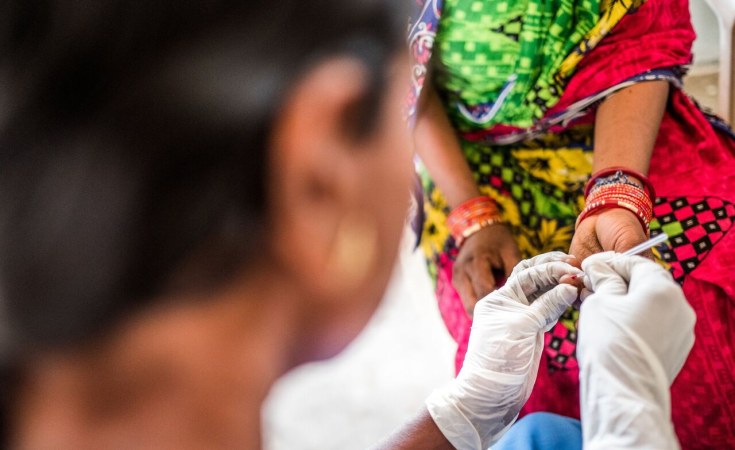Cape Town — Growing up in West or Central Africa, malaria is the most common illness you suffer from. I would say, where I lived in Buea at the foot of Mount Cameroon, that nearly everyone is hit by malaria at least twice a year.
It has become so common that at the first symptoms - cold shivers and a high temperature in the evening - we run to the drug store at the side of the road and get some malaria pills. It starts getting worse around the third day, and then you think maybe I should go to hospital. And that's where you can expect to meet a long queue of fellow malaria sufferers.
Generally, you can expect to be admitted to hospital for two to three days, attached to a few drips and then you're good to go. Some people actually go for traditional treatment. In this case, a mixture of fresh herbs (this recipe is not shared) are boiled and then the patient covers his/herself with a thick blanket to trap the steaming vapour from the pot.
It is believed that the vapour-generated heat helps the person sweat the malaria away. Some swear by this method of treatment is more effective than the "white man's'" method, and claim it does not only cure but also prevents future infections.
It's never worked for me.
I remember as a young University of Yaounde student travelling home to Buea on holidays, I made a stop at my aunt's house in Douala - more precisely Bonaberi. This is a swampy area very close to the Atlantic ocean. Places like these are a breeding area for mosquitoes like the malaria-carrying Anopheles type. My cousin persuaded me to stay the night and I agreed. After a heavy night of drinking, we retired to bed. His room was equipped with mosquito nets and several indoors mosquito sprays.
As soon as the lights were turned off, the room was flooded with mosquitoes. I turned on the lights and looked at the ceiling. It was basically covered with them. One is supposed to doze off easily after a night of drinking but all the effect of that alcohol was gone and just the buzzing of the mosquitoes in the tiny room felt like I was in traffic on the freeway.
To my astonishment, my cousin was snoring. I shook him and asked how he could sleep with all these mosquitoes in the room and he replied jokingly: "These mosquitoes are tired of my blood and have just smelled fresh food, that's why I'm not troubled!"
I could not stay another day and, as expected, a couple of days later I was badly in need of malaria treatment.
That got me wondering if my cousins and others in such areas have become immune. They sleep through the night in a room full of mosquitoes and don't get sick often. I, on the other hand, spend a sleepless night and find myself in a hospital bed a couple of days later.
Fast forward, I move to Cape Town in South Africa and have not been hit by malaria since. It is a relatively rare disease in this part of the continent. I was amazed to find out South Africans know very little about malaria and most of them have never suffered from or seen someone suffering from malaria.
Then I traveled to Cameroon for a month's vacation in 2016 without taking malaria prophylaxis.
A week or so after I was back from my hometown visit, I knew I had malaria. I went to Somerset Hospital in Cape Town and told the doctor I had malaria even before tests were conducted.
When the results confirmed this, there was panic in the hospital and I was wheeled into an isolated word to have further tests. This was on election day and I refused to miss my chance to vote because of malaria, so I signed a discharge form, took my medication and headed for the polling station.
Amazingly, a couple of weeks later I got a call from the Cape Town City Council to confirm my address.
The next day, there was an official from the city's Centre for Disease Control at my doorstep to make sure the disease is properly treated, or maybe he thought it was contagious. I had to explain to him that it's malaria. I grew up with and am well familiar with the fact that with more effective treatment and a clean environment, it can be curtailed.
As the world comes together to fight malaria we should put equal emphasis on cleaning up our environment and the clearing of swamps. This is mostly the preferred breeding places for mosquitoes. Prevention is better than cure.


